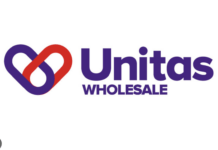Country Range managing director Coral Rose says that brands need to lose their arrogance if they want to win with foodservice
We live in a competitive, consumer-driven economy and are used to shopping around and haggling for the best value for money we can get. We are not afraid to negotiate on the things we buy. Why then do big brands believe they have a divine right to be a part of a wholesaler’s business and think they are invaluable?
In foodservice, the attitude is often arrogant: we are brands and people want us. But, even though we are coming out of the recession, people don’t have the income levels to afford pricey meals out. Caterers therefore have to be clever in how they prepare dishes, and re-evaluate their ingredients and their pricing structures.
[pull_quote_right]Relying on promotions where a product is expensive one month, cheaper the next, is not adding any real value
to our business as a wholesaler[/pull_quote_right]
While brands do sometimes work closely with national foodservice operators, they don’t offer the same support to independent caterers. However, it is the independent caterers who rely more on brands to build their reputation and guarantee consistency. But when it comes to the crunch and they are having to offer two-for-one meal deals, etc, where is the brand adding value? How is it saving them money?
We are finding that caterers are increasingly trying out own-brands and realising they can make the same dish and make a bit more money on it.
What are brands doing to win them back? Why would caterers switch back and pay 20% more for a product when they can invest in a good own-brand and get the same quality?
Brand owners need to be able to offer different pack formats and sizes and focused, targeted marketing activity to help them attract the caterer. They need to spend a greater share of their resources on foodservice rather than focusing them on retail where, because it is so competitive, brands work hard to get noticed on the shelves and shout to the consumer.
For example, a caterer who is buying a product for a pub operation has a very different view of a product than someone working in a care home. Care homes have a set budget and know exactly how many people they are going to serve each day, whereas pubs have to take a punt as they might be empty one night and rammed the next. There is very little appreciation of that in pack sizes.
Some brands should perhaps concentrate on a specific sector and make their products more relevant to that area of foodservice. Can they be more in tune with up-and-coming legislation and the wider issues affecting the industry?
In all fairness, there are some brands that are leading the way in foodservice, providing comprehensive, useful information on pack, and giving caterers hints and tips on how to get the best out of their products, which gives you confidence in them. But they do need to do more to explain their relevance and demonstrate their leadership.
Too often, brands rely on promotions a few times a year to drive their growth. From the caterer’s perspective, is this really going to help them in the long run? Are their customers going to visit more regularly because of it? No.
Relying on promotions where a product is expensive one month, cheaper the next, is not adding any real value to our business as a wholesaler. It’s not sustainable. Why invest in four promotions a year that might benefit national catering operations but not the independents? Why not have everyday low pricing? They need to better understand the different requirements of the caterer to help us attract caterers on their behalf. We are their shop window, after all.
So, the answer to the question is, yes, brands do have a relevance, but they are becoming less relevant, losing pace, and finding it harder and harder to win caterers back.
You only have to look at the School Food Plan, with Henry Dimbleby and John Vincent vocally encouraging schools to save money by switching to good own-brands.
I’m a strong supporter of brands and work closely with them, but it’s so frustrating to see the arrogance. They need to lose this if they are going to continue to be a success in foodservice.







